Translations 677
CUBA AHORA interviews Esther Perel

Esther Perel: “We have started to control the body, to control sexuality”
Interview with Esther Perel, psychotherapist and specialist in couples therapy, who participates in the 6th Congress of Education, Orientation and Sexual Therapy….
By MARTA MARIA RAMIREZ
January 23, 2012
Translated and edited by Walter Lippmann for CubaNews.
Esther Perel is a psychotherapist and specializes in couples therapies. Born in Belgium, she studied in Israel and has her practice in NY where it seems she has many celebrities as patients.
Talking with Esther Perel is a privilege. Her personal story, as the daughter of Polish Jewish Holocaust survivors, refugees in Belgium, could be the plot of a novel or a movie.
But today we talk about the couple, after the workshop “The dilemmas of desire and clinical work with couples”, which she offered to specialists at Havana’s Casa de la Amistad on Saturday, January 21.
On Monday January 23, Perel will conduct the workshop “Emotional intelligence, erotic intelligence: new conversations about the sexuality of life in couples.”
What is the body for Esther?
It is the house in which we live. Some of us live well because it is a house, which has been respected, caressed, cared for, and which we care for.
Others see it as the central place of our inhibitions, restrictions and it turns out to be a prison. But the body is the foundation: if you are not inside your body, you are not present and to have desire or satisfying sex, you have to be present and your partner too.
If the body is dissociated, you are not there. If the body is not a place where you want to invite someone, where you are going to enter, because you don’t just enter an orifice, you enter a person, a world, a space.
For me, the body that enjoys, that feels good, is a base. At the same time, the most important sexual organ is the mind.
So, are the images of ideal women presented to us by the mass media a place of torture also for our sexualities?
It is torture for women that is expanding also to men, in consumer societies, where youth and beauty can be bought.
Since always, in every civilization, the body has been adored, decorated… This is not new. But the idea is that if you are not the ideal model, you have to feel less, diminished, because you don’t make it. That is slavery.
This is a way to control and every society controls sexuality, abstinence and license. We can no longer control so much what people do sexually, so we have started to control the body, how it dresses, how it takes care of itself, how it beautifies itself.
How does Esther see sexual pleasure? For you, is it a sexual right?
I never thought of pleasure as a right. But I am interested in this point of view. It seems logical to me.
I see pleasure more as a fundamental need in life. Not only sexual pleasure, to have pleasure, to enjoy, to feel alive.
Pleasure is the antidote to anxiety. It is play. When we see a child who does not play, we say that he is depressed, that he is anxious and that he is not living well. Adults also need to be able to play and have pleasure.
Sexual pleasure is a part of sexuality, a sexuality of desire, not of reproduction or obligation. So, desire comes with pleasure.
Why do we tend to deprive ourselves of pleasure, even though our sexuality, after the appearance of the contraceptive pill, is no longer for reproduction?
We are the first generations to have and want long-lasting sex. We think it can be achieved with only one person, based on the modern couple model, which is romantic. We want sex anchored in desire and this is, fundamentally, an expression of individual freedom.
As a consequence, pleasure cannot be forced; yes, sex. There is no pleasure without freedom. You cannot feel pleasure when you are anxious, when you are afraid, when you are forced or controlled.
Is there a lot of discussion about monogamy and infidelity? What do you think?
Monogamy is going to be the main issue for couples from now on. The next frontier will be sexual exclusivity and developing other ways of thinking about monogamy. Perhaps a monogamy not seen as sexual exclusivity, in the same way that we could not conceptualize premarital sex, with more than one person in life or non-pathologized homosexuality.
Infidelity is one of the main reasons for divorce because it breaks the romantic contract.
Have you ever said that having to take care of the other person in the couple is the most antiaphrodisiac? Why?
Love takes care, has responsibility, mutuality, reciprocity. But need does not give desire. Desire gives desire, invitation gives desire, wanting gives desire; need does not. When people talk about situations of desire they don’t feel responsible for anyone.
There is no element more successful than the independence of the other. When you ask men and women what turns you on the most, they answer self-sufficient and independent people. The fully sexualized woman is a free woman who does not need a man; same with competent men. There is no dependence on desire.
This is a contradiction with the model of femininity imposed by the patriarchy….
The submissive woman, with a double standard by the privileged man, that he can be unfaithful or can have passion because she does not, is a model is failing, even if it continues.
Why is there a crisis of the couple? Is it true?
It is true that there is a crisis of the couple. But I don’t know if the couple was so good before. I do know that expectations have changed. Today we want a person to give us what a whole community used to do: belonging, continuity, stability, independence and at the same time I want you to be my best friend, my passionate lover and even my confidant. Never before have we tried to have the same person give us continuity and novelty, surprise and stability?
Also today we want to be happy today. Before it was something for after death, not for the here and now. Not only do we want to be happy, but we are unhappy not to be happy. Happiness is a mandate.
So, the crisis of the couple is because we have carried within a unit a number of needs that are perhaps too many.
What is the meaning of the bed in today’s times?
Couples talk about their problems and their erotic problems in bed. Many fights are located there because we have a bed.
Today’s bed we want be sensual, passionate, affectionate, affectionate and when it is not so, there is an emptiness, anguish, longing… The bed becomes a place of intimacy and not only to go to rest.
Why Cuba, after two years?
Today the family is maintained only if the couple is happy. Today the focus is no longer: we stay together for the children, the community… I think we are all with the challenges of couples therapy, which I think is the most difficult. I am part of a global conversation and I came to have it with Cuban compañeros .
Summit of exclusion vs. Summit of the Peoples

Summit of exclusion vs. Summit of the Peoples
The high-level session of the IX Summit of the Americas begins tomorrow in Los Angeles, California.
Translated and edited by Walter Lippmann for CubaNews.
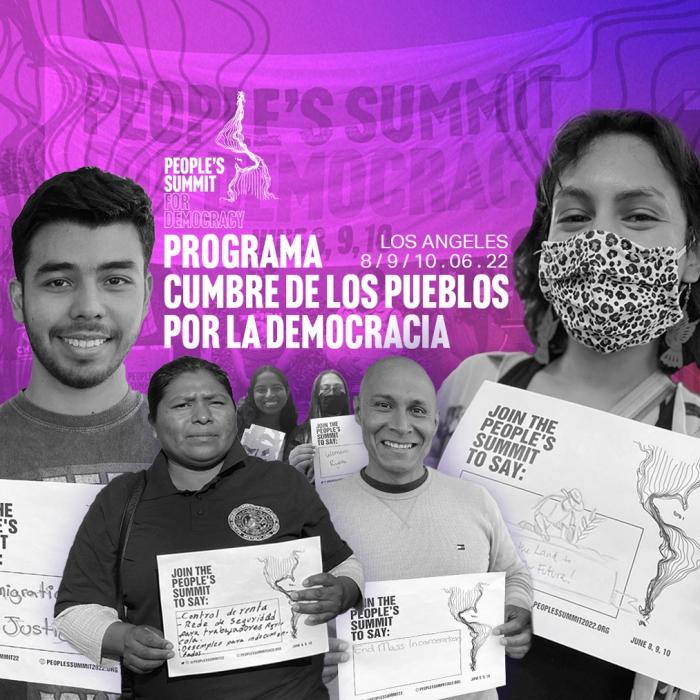
From the diversity of ideas, the People’s Summit tries to raise as many voices as possible, without exclusions based on political interests; that is the difference between one Summit and the other. Photo: taken from Dominio Cuba’s Twitter feed.
The high-level session of the IX Summit of the Americas begins tomorrow in Los Angeles, California. The United States is once again hosting the conclave, after the first one in Miami in 1994. But hosting has been a bit too big for them, because for “their Summit” they not only took too long to send out invitations or to tangle organizational issues, but instead of focusing on discussing the real problems affecting the region with all those involved, they decided to put on the veil of “democracy” to exclude and, as a consequence, several leaders informed their disagreement with the decision, or announced that they would simply not participate.
On the other side will be the Summit of the Peoples and for Democracy, which will begin on the same day. But this one has not counted on the consent and good will of the US government, nor will it be held in large halls like the Summit of the Americas. On the contrary, last Friday, a group of ultra-right-wingers broke into one of the premises where the event is being coordinated, with the aim of occupying the space through the use of violence.
“For an hour we were defending our space, in the middle of that the police arrived, and instead of preventing what they were doing, they only observed and did not intervene in any way. What’s more, they prevented us from removing these extreme right-wing activists,” Manolo de los Santos, co-director of The People’s Forum, one of the U.S. organizations in charge of preparing the People’s Summit, told Granma in an exclusive interview.
He said that the attack was not only against their space, “but also against what it symbolizes, which are the socialist ideas, the work with the communities and the workers’ struggles”.
De los Santos told our newspaper that the organizational team continues with their minds and morale high, that they have received signs of solidarity from different parts of the world. “This type of attack is a phenomenon that the left has to face today,” he denounced.
Regarding the Summit of the Peoples and for Democracy, he explained that there are already more than 225 groups that will attend to interact in the official program, which includes panels and cultural activities.
“We are very motivated because we have already confirmed the presence of more than a thousand people, while many more are expected to participate in the demonstration on June 10, which we have called the March against the Exclusion Summit.” It is important to remember that this mobilization will take place after much negotiation with the Federal Government in Los Angeles, which, at first, denied permission.
He pointed out that, under the political umbrella of the Summit, other actions will take place in the city, related to the defense of the Amazon, in favor of Cuba and Venezuela, the right to housing and for [the rights of] immigrants.
“The important thing for us in this process of organizing the People’s Summit is to break with these policies of exclusion, to achieve greater social cohesion of popular movements, trade unions and the peoples who are in struggle in our continent,” said Manolo de los Santos.
This is an event that, despite the diversity of ideas, tries to raise as many voices as possible, without exclusions based on political interests; that is the difference between one Summit and the other.
US lacks consensus to impose its policies

United States lacks consensus to impose its policies
Manolo de los Santos, coordinator of the People’s Summit to be held June 8-10 in Los Angeles, assures that this meeting will raise the demands of Latin America and the Caribbean in the face of a call “of the Americas” that is already a failure.
Posted: Saturday 04 June 2022 | 10:12:56 pm. Updated: Saturday 04 June 2022 | 11:27:41 pm.
Author:

Marina Menéndez Quintero | marina@juventudrebelde.cu
Translated and edited by Walter Lippmann for CubaNews.
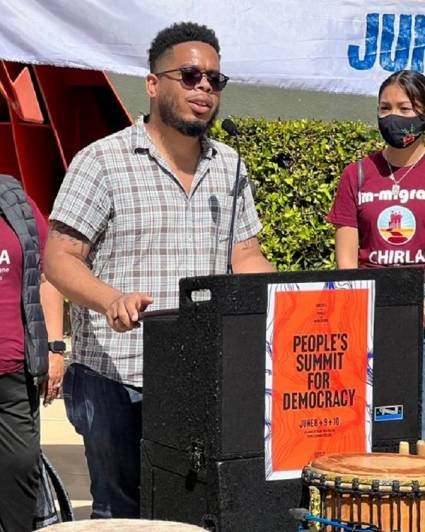
Manolo de los Santos has said that the Biden Summit is already a failure. Autor: @manolo_realengo/ Twitter Publicado: 04/06/2022 | 09:56 pm
Despite the fact that they have been denied permission to march on June 10 through the streets of the city of Los Angeles, the People’s Summit 2022, which, as every year since 2005, is held parallel to the misnamed Summit of the Americas, will demonstrate on that day.
The confirmation was given by Manolo de los Santos, coordinator of the event, when asked by Juventud Rebelde. But the question was just the newspaper’s excuse to extend in a dialogue via whatsApp, to ask the also co-director of the People’s Forum organization and a member of the International Assembly of the Peoples, his vision about that refusal. The importance of an appointment that is held, he said, “at a key moment”, as well as the reasons on which the decision to hold the march is based despite everything, among other issues related to the exclusionary Summit of the Americas that, in his criteria and that of many, is already a failure.
“We decided -and we have already told the Police Department and we have asked them to communicate it to the federal government- that we, with or without permission, are going to march in the city of Los Angeles; not only because it is our democratic right, but also because it has been many years of struggle, and what we come to express are not only complaints but demands, demands that our peoples of the entire continent have against this exclusionary Summit,” he said in reference to the presidential meeting.
De los Santos spelled out the details of the refusal that comes after a semester of preparation for the Peoples’ Summit and “exactly three months” after the organizers requested permission to mobilize in the city.
“We asked the Los Angeles Police Department for it and we were confident that the democratic and legal process here in the United States was going to guarantee our right to free expression.
“We had been waiting for months for a response, until last week, finally, they informed us that the federal government and the Secret Service had not yet authorized that march and that, therefore, they could not give us the permit.”
“We have denounced it,” said the social activist, who considered that “this Summit of the Americas, which already has a character that excludes progressive countries like Cuba, Venezuela, Nicaragua, is also excluding the peoples, and the same people who reside in this city, who are living a very strong economic and social crisis.
“On top of that, to say that this Summit of the Americas, which is not democratic for all the countries of the Americas, is also not democratic for the peoples who want to express and make their voices and their points of view visible, is too much,” he asserted.
Asked about the central motivations of this meeting of the peoples, De los Santos said that much has changed in our continent since the initial Peoples’ Summit of 2005, in Mar del Plata.
“On the one hand, we lived through a period of great growth of popular forces, of leftist forces; many popular governments came to power. But we have also seen a great period of counterrevolution, we have seen a period of coups, military interventions, of trials against progressive presidents.
“In other words, the U.S. Government has not ceased to lash out against leftist and popular processes in our continent, and I believe that when we arrive at this Peoples’ Summit in 2022, we do so at a time when the U.S. Government has not ceased to maintain that policy of aggression against Latin America and the Caribbean.
“On the contrary, it has deepened it, and it has done so despite the fact that President Joe Biden, in his campaign, had spoken of turning a new page in the history of relations between the region and the United States.”
Rejection of exclusion
The young social activist of Dominican origin also denounced the Biden administration’s attempt to divide Latin Americans; “to decide which Latin Americans are the “good” and which are the “bad” ones, “based on which political, social and economic systems we have decided to carry out.”
“That is why this Summit comes at a key moment. It is a real battle of ideas that is taking place in Los Angeles. And I think there is already a recognition, even within American society itself, that Biden and his Summit have been a failure, before they even started. Because the consensus that they assumed they had in Latin America in their favor does not exist,” he said.
The social activist also valued as very important “the massive rejection, not only of other presidents and heads of state, I believe that of the society and the peoples of Latin America and the Caribbean”, to the exclusion of Cuba, Venezuela and Nicaragua from the Summit of the Americas.
“I believe that this has also been dismantling the idea that the United States had consensus in the region and that it could continue to impose its decisions.”
“We have even seen the fragmentation of certain U.S. alliances in the region. Therefore, I believe that this Summit of the Americas will mark a before and after in the relations between the United States and Latin America.
“They will have to realize now that they can no longer maintain the same relationships. That our peoples have the impetus to be free, to be sovereign, to be independent above all else, and that our own integration fronts will have to emerge and be strengthened. And that we, the people in the United States, who identify very much with these causes, want to be part of this integration process”.
Manolo de los Santos affirmed that, for this reason, “the People’s Summit will be a reflection of all the struggles that are taking place in our continent; of the voices of Cuba, Venezuela, Nicaragua, which they have wanted so much to exclude, but which will be present, anyway, in Los Angeles.
“Our banners of struggle, the battle for sovereignty, for independence; the struggle for agrarian reform, for quality education for all; the struggle for a health system, to eliminate the “apartheid” of vaccines (anti-COVID-19), all of that will be present at the People’s Summit, and not only by the panelists from all over the continent who will be sharing with us but also in the struggles and political mobilization that will take place.”
Regarding Washington’s refusal to grant visas to the members of the Cuban delegation that would attend the Peoples’ Summit, De los Santos confessed that “to be honest, we were very upset with the denial of visas, precisely when we know that the U.S. government is inviting reactionary figures.
“They denied the possibility of a dialogue with the American people; they were afraid of the presence of the delegation of dignified Cubans who, beyond politics, beyond ideology, were going to talk about concrete and material achievements of their peoples, they were going to talk about everything possible that the Cuban Revolution is doing in these times, not only to improve the quality of life of its own people, but to help the rest of humanity.
“We were left without that live presence, but, in any case, Cuba will be present at the Peoples’ Summit; it will be participating through digital means, and I believe that no matter how much they want to block relations between peoples, we insist that Cuba is not our enemy, Cuba is a friend of humanity, and we have the right to accompany it and walk together with it in this great struggle for humanity.”
A Summit by and for the peoples
MORE than 200 organizations, trade unions and social movements have confirmed their attendance to the meeting, to be held in the U.S. city of Los Angeles under the banner of A Summit by and for the peoples, on June 8, 9 and 10, “to counteract the 9th Summit of the Americas (…)”, announces the call to protest.
Los Angeles and the prelude to a Summit

Los Angeles and the prelude to a Summit (+ Video)
Some Miami-based anti-Cuba hate-mongers, especially in the South Florida media, have begun to appear, announcing their attendance to the Summit.
Translated and edited by Walter Lippmann for CubaNews.
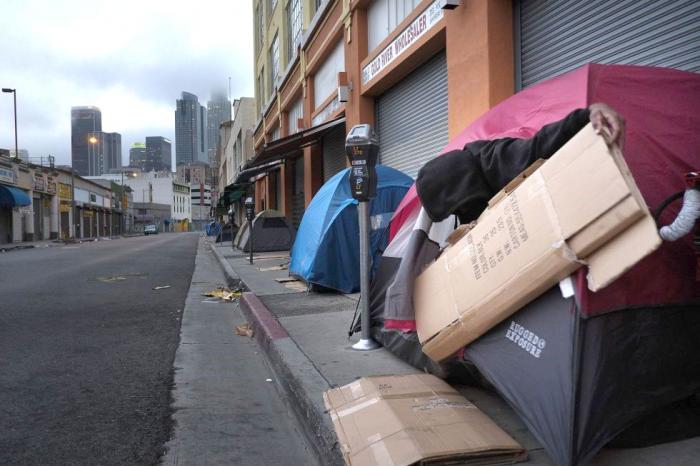
In Los Angeles, three out of four homeless people have no bed in any shelter or temporary solution. PHOTO: AP
Prelude to the Summit of the Americas in Los Angeles, United States, at the end of the first weekend of June, the meeting continues to suffer from a “strange” silence on the part of its hosts and, except for a last-minute invitation to the President of the Spanish government to attend as Joe Biden’s guest -is it that Spain is in America?-, little is known about the subject.
The invitation from across the seas is focused on the issue of migrants. I am not very convinced that Biden’s power of persuasion can involve a country in this issue that continues to lead the European Union in unemployment, with a rate of 13.3%.
The U.S. administration hopes that Spain will agree to double or triple the number of temporary workers from Central America, according to Axios.
Regarding the participation of the President of Mexico, Andrés Manuel López Obrador [AMLO], it was reported that the U.S. President wishes his Mexican counterpart to accompany him in person at the meeting.
López Obrador has stated that, if Washington does not invite all the countries of the Americas to the Summit, he would not cancel his nation’s participation in the event, but would send his representative, the Minister of Foreign Affairs.
Also in the last few days, especially in the South Florida press, some Miami-based anti-Cuba hate-mongers have begun to appear, announcing their attendance at the Summit. The publications do not explain whether they are part of the so-called civil society, knowing that they are counter-revolutionaries of Cuban origin.
The rest of this poorly made movie has been put in the hands of the media related to its organizers so that they can “make a fuss” about the ups and downs and manipulations of the hosts, which are not at all transparent.
For the Spanish newspaper El País, the city is “the misery capital of the United States”, and argues that the number of “homeless” people there has increased by 23% in one year, and details that three out of four homeless people do not have a bed in any shelter or temporary solution.
Across the United States, there are 553,000 people sleeping on the streets.
According to the RT website, the “hidden face” of Los Angeles is its poverty rate. It is estimated that there are about 66,433 homeless people in the city, and the African-American population continues to be the hardest hit by this scourge, if one compares the proportion of 33.7% with the total population, since this community only represents 7.9% [of the whole].
ATTACK AGAINST THE PEOPLE`S FORUM REJECTED
The attacks against the headquarters of The People’s Forum, in New York City, have been rejected by institutions and social movements that warn of the action of right-wing groups in the United States, with the support of the police.
“From Casa de las Americas we send all our support and solidarity to the members of The People’s Forum (TPF), whose headquarters in New York City has been the object of an illegal attack by reactionary forces of the extreme right”, a communiqué from this institution states.
According to Prensa Latina reports, more than a dozen New York Police Department agents entered TPF without being invited and acted as security for the extreme right-wing, which carried out the illegal attack.
The Cuban Institute of Friendship with the Peoples (ICAP) expressed its strong rejection of the aggression against the organization.
It is noteworthy that this attack takes place when many TPF staff and leadership members are in Los Angeles organizing the People’s Summit for Democracy, ICAP stressed.
20 years after Bowling for Columbine…

20 years after Bowling for Columbine, no one is listening
The thesis that the link between the American people and firearms engenders irrational violence continues to be valid.
Translated and edited by Walter Lippmann for CubaNews.
 American cinema, which for more than a hundred years glorified the law of the gun, has been forced to dress up to deal with the massacres that have occurred in the schools of that country. But analysis and warnings seem to have fallen on deaf ears, and not precisely because of artistic ineffectiveness.
American cinema, which for more than a hundred years glorified the law of the gun, has been forced to dress up to deal with the massacres that have occurred in the schools of that country. But analysis and warnings seem to have fallen on deaf ears, and not precisely because of artistic ineffectiveness.
Michael Moore sank the scalpel in his memorable documentary Bowling for Columbine (2002), acclaimed all over the world, and which would become a cultural reference for the nation based on shattering evidence: the link between the American people and firearms irremediably engendered acts of irrational violence.
The statistics offered by the filmmaker were shocking: 11,000 fatalities by firearms in one year. Today, when Bowling for Columbine is celebrating its 20th anniversary, one cannot help but be disturbed by the fact that, from the beginning of 2022 until the recent massacre in a school in Texas, five months ago, 17,202 people have died in the United States for the same reasons.
According to the Gun Violence Archive, since January of this year, there have been 213 “mass” shootings and ten “mass murders”.
Michael Moore did not hesitate to warn and predict the future in a documentary film about the 1999 massacre perpetrated by two students at Columbine High School in Littleton, Colorado, a region where 5,000 employees of the Lockheed arms company lived. “And if fathers make missiles,” the filmmaker brought out his proverbial irony, “it is not strange that sons wield shotguns”. And, unstoppable in his mordacity, he made public that a local bank was awarding an assault rifle to anyone who opened a new account.
Relating the culture of violence to the prevailing culture of fear in his country, Michael Moore embarked on a journey of inquiry that led him to interview actor Charlton Heston, [then] president of the National Rifle Association and symbol par excellence of the praises sung by Hollywood to the use of guns. It was an interview that revealed hypocrisy, especially when Heston was filmed speaking at a gun rally near a town where a six-year-old girl had recently been murdered by a schoolmate.
Numerous films have been made on the subject of killings in schools and other places, highlighting the ease with which murderers have access to high-powered firearms. Among them stand out Elephant (2003), by Gus Van Sant, awarded at Cannes and also inspired -in documentary and fiction key- by the events of Columbine; Let’s talk about Kevin (Lynne Ramsay, 2011) and Rudderless, (William H. Macy, 2014).
There is a long list of films that deal with topics related to the criminal event, such as harassment, racial and religious discrimination, social inequalities, xenophobia, social networks, video games, movies that ponder violence and the possible mental illnesses of the perpetrators, triggered or influenced, not infrequently, by all of the above. (Remember the massacre of 12 people in a Denver movie theater in 2012, during the premiere of a Batman film. When the police arrested the killer, a young man of 24, he identified himself: “I am The Joker”).
Judging by the legitimate expressions of pain, but also of helplessness, heard recently from U.S. leaders regarding the inability to reverse the current situation of many guns in the hands of those who claim the right to own them (as if the guns were toys), it is to be assumed, with horror, that new films about killings will have to continue to be made, or, in other words, art will once again be disqualified in the face of deafness.
Domestic terrorism in the terrorist state

Domestic terrorism in the terrorist state
The search for notoriety, the need to be heeded, social inequalities, anger, desperation, racial hatred, coexist in a country that dominates the world through the greatest expression of violence, war. All this and more underlies those who pull the trigger in the streets, schools and workplaces of the United States.
Published: Sunday 29 May 2022 | 12:05:15 am.
Author:

Juana Carrasco Martin | juana@juventudrebelde.cu
Translated and edited by Walter Lippmann for CubaNews.
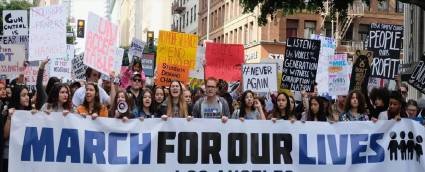 Tuesday’s devastating mass shooting in Uvalde – a small Texas town where the victims were 19 students between the ages of seven and 10 and two teachers at Robb Elementary School, where the majority of the student body is Latino and poor like the perpetrator himself – put the spotlight on this weekend’s National Rifle Association (NRA) annual meeting in Houston, Texas.
Tuesday’s devastating mass shooting in Uvalde – a small Texas town where the victims were 19 students between the ages of seven and 10 and two teachers at Robb Elementary School, where the majority of the student body is Latino and poor like the perpetrator himself – put the spotlight on this weekend’s National Rifle Association (NRA) annual meeting in Houston, Texas.
The pro-gun lobbying group’s convention was being held starting Friday some 300 miles from the scene of the tragedy, and that day would feature appearances by Texas Governor Greg Abbott, Texas Senator Ted Cruz and former President Donald Trump, all Republicans.
The NRA has successfully “lobbied” Republican members of Congress – to many of whom it contributes juicy donations during their election campaigns, as it does to more than a few Democrats – to reject any bill that would restrict access to guns, including a ban on assault weapons and high-capacity magazines, and also to reject a bill that would apply background checks to all gun sales.
Texas is an excellent supporter of the Second Amendment to the U.S. Constitution, and last year passed a law allowing people to carry handguns without a permit or training in their use.
On Thursday – as the family of Irma Garcia, one of the two teachers killed in Uvalde, announced that the teacher’s husband of 25 years and father of her four children, had died of a heart attack as a result of the tragedy – Senate Republicans blocked the Domestic Terrorism Prevention Act.
The legislation would have created an interagency task force within the Department of Justice, the Department of Homeland Security and the FBI to analyze and combat the infiltration of white supremacists into the military and federal law enforcement agencies.
It was an attempt to respond to an earlier shooting, just ten days before the one in Texas, at a supermarket in Buffalo, New York, that left ten people dead, most of them Black, and was perpetrated by a young white, racist, right-wing extremist, tragic event that was described by President Joe Biden as an act of terrorism that should no longer be allowed.
Senate Democratic Majority Leader, New York lawmaker Charles Schumer, said before the vote, “The bill is so important because the mass shooting in Buffalo was an act of domestic terrorism. We have to call it what it is, domestic terrorism. It was terrorism that fed on the poison of conspiracy theories like the white replacement theory,” and he saw it as an opportunity to curb gun violence, but his call for Republican support to begin debate failed.
A clear political dividing line put those of the political parties above the interest of safeguarding a society. Not a single Republican said yes to the measure, arguing that it would open a door to inappropriate oversight of political groups and create a double standard for groups on the extreme right and left of the political spectrum.
Some of those men, supposedly public servants, called it an “insult” to police officers, and labeled it a plan by Democrats to “name our police as white supremacists and neo-Nazis.”
It is obvious to recall the degree of impunity that police brutality has generally enjoyed, one of the most serious, enduring and controversial human rights violations in the United States as confirmed by human rights organizations, a national and institutionalized problem, expressed in unjustified shootings, severe beatings, lethal chokeholds during arrests, and other unnecessarily harsh physical treatment, where the victims are generally Blacks and Latinos.
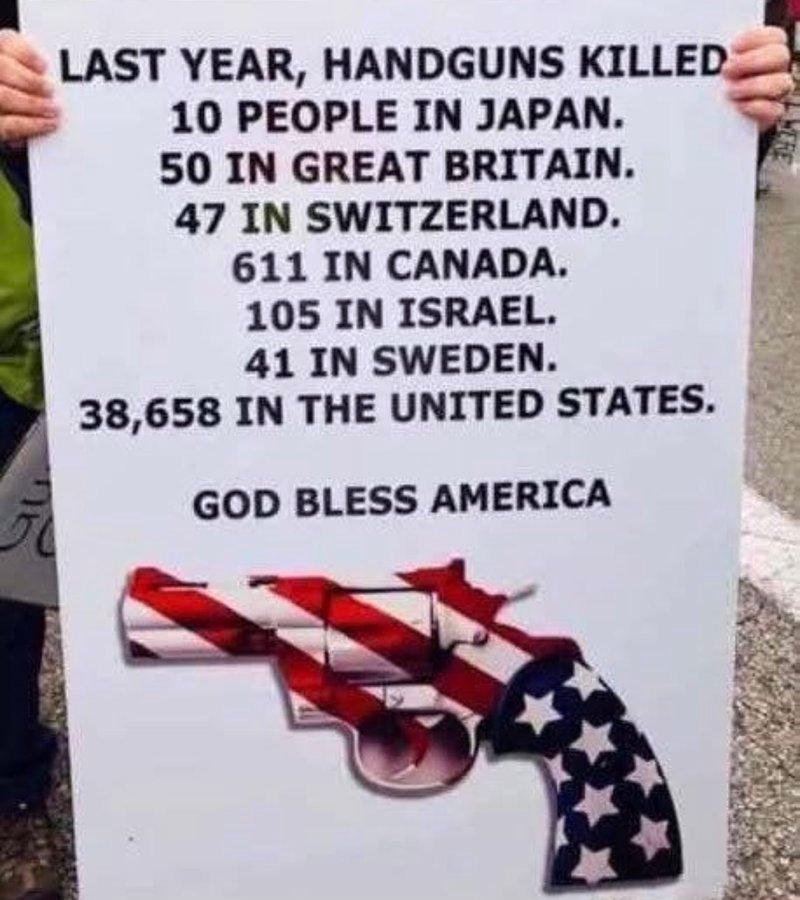
Esteban Morales Domínguez has passed away

Renowned intellectual Esteban Morales Domínguez has passed away. (+ Video)
A member of the Union of Writers and Artists of Cuba and of the José Antonio Aponte Commission, in which he developed an intense work, he bequeathed an important series of essays in the field of the study of the links between Cuba and the United States.
Autor: Pedro de la Hoz | pedro@granma.cu
May 18, 2022 19:05:15 PM
Translated and edited by Walter Lippmann for CubaNews.
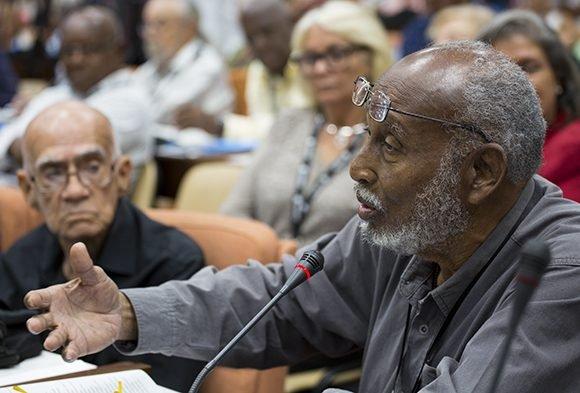
Esteban Morales Photo: Cubadebate
Renowned essayist, political scientist and professor Esteban Morales Domínguez died Wednesday at the age of 79, victim of a heart attack.
Through Twitter, the First Secretary of the Party Central Committee and President of the Republic, Miguel Díaz-Canel Bermúdez, wrote about the intellectual:
“The surprise death of Esteban Morales pains us. We will miss his intelligent, incisive and committed assessment of the problems of our time. My condolences to his family, friends and the Cuban intelligentsia, which he gave prestige to with his work”.
A member of the Union of Writers and Artists of Cuba (UNEAC) and of the José Antonio Aponte Commission, in whose bosom he developed an intense work, he bequeathed important written work in the field of the study of the links between Cuba and the United States.
Among the most significant titles in this field are Cuba-United States Relations: A Critical History and From Confrontation to Attempts at Normalization: U.S. Policy Toward Cuba, the latter in collaboration with essayist Elier Ramirez.
In another sphere, one of his books of greatest impact was Desafíos de la problemática racial en Cuba, published in 2007 by the Fernando Ortiz Foundation.
Morales’ intellectual career was linked to the University of Havana, where he was initially trained as an economist, devoted himself to teaching, and served as dean of the Faculty of Humanities and founding director of the Center for Studies on the United States.
Manuel Yepe 1936-2022

Cuban journalist and diplomat Manuel Yepe passes away
May 16, 2022
Translated and edited by Walter Lippmann for CubaNews.
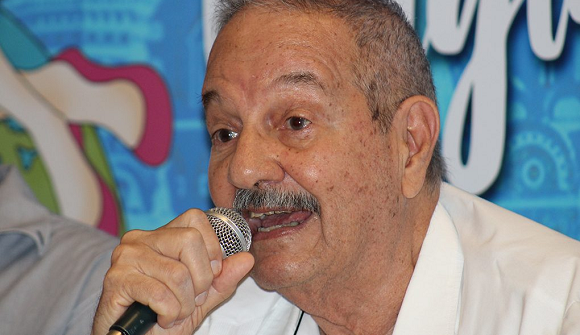
Prominent journalist and diplomat Manuel Yepe Menéndez. Photo: Taken from Cubaperiodistas.
Prominent journalist and diplomat Manuel Yepe Menéndez passed away this Monday in Havana, after several days of fighting for his life.
Yepe, a renowned columnist for many Cuban and foreign media outlets, was born in 1936 and since 1954 he was an insurrectionary fighter in Havana as a member of the Youth Brigades of the 26th of July Movement (M-26-7) at the University of Havana.
He worked in the reproduction and distribution of the defense plea of Fidel Castro as the main accused for the assaults to the Moncada Barracks in Santiago de Cuba and Carlos Manuel de Céspedes in Bayamo. Between April and July 1958 he edited the clandestine magazine of the M-26-7 called ACCIÓN, which was published weekly in Havana and identified itself as the Organ of the Cuban Youth. When the Revolution triumphed, he was vice provincial coordinator and responsible for the propaganda of the M-26-7 in the province of Matanzas.
With a degree in Law, Economics and Social Sciences, he served as Protocol Director at the Ministry of Foreign Affairs, Cuban Ambassador to Romania, General Director of the Prensa Latina news agency, Vice President of the Cuban Institute of Radio and Television, Director of the Guerrillero de Pinar del Río newspaper, National Director of the UNDP TIPS project and member of the Secretariat of the Cuban Movement for Peace.
He defined himself as “a Cuban revolutionary in the ranks” and “one of the many Fidelistas who participated in the Revolution in the second line and gave his life to that beautiful political project”.
Yepe was a member of the Union of Cuban Journalists. The condolences of the national presidency of UPEC go out to his family and friends.
(With information from Cubaperiodistas.)
Cuba condemns repression by Israeli forces

Cuba condemns repression by Israeli forces at funeral of slain Palestinian journalist
UN Secretary General António Guterres also criticized what happened at the funeral
Translated and edited by Walter Lippmann for CubaNews.
 A strong condemnation, on behalf of Cuba, against the cruel and inhumane behavior of Israeli forces during the burial of Palestinian journalist Shireen Abu Akleh, recently murdered, was posted on Twitter by Cuban Politburo member and Foreign Minister Bruno Rodríguez Parrilla.
A strong condemnation, on behalf of Cuba, against the cruel and inhumane behavior of Israeli forces during the burial of Palestinian journalist Shireen Abu Akleh, recently murdered, was posted on Twitter by Cuban Politburo member and Foreign Minister Bruno Rodríguez Parrilla.
“We reaffirm our invariable solidarity with the Palestinian people and their just cause,” said the Foreign Minister, who described as “cowardly” the murder of the Al Jazeera reporter, by Israeli forces.
UN Secretary-General António Guterres also criticized what happened at the funeral. Guterres said, through a spokesman, he was “deeply disturbed by the clashes between Israeli security forces and Palestinians gathered at Saint Joseph’s Hospital, and by the behavior of some police officers”.
================
TRANSLATION:
Our strongest condemnation of the cruel and inhuman behavior of the Israeli forces during the burial of journalist Shireen Abu Akleh.
We reaffirm our unwavering solidarity with the Palestinian people and their just cause.
https://twitter.com/BrunoRguezP/status/1525170140085637121
Amuchastegui: Political News in Cuba
- English
- Español
POLITICAL NEWS IN CUBA
By Domingo Amuchastegui
May 5, 2022
Received by email from the author
Translated and edited by Walter Lippmann for CubaNews.
After May Day in Cuba, it is convenient to point out some very important issues.
Following the social outburst of July 11, 2021 originated by the sustained intolerance and gross negligence in the management of the Party-State, the effects of the economic war applied by the Trump administration (maintained until today by the Biden administration) and the devastating consequences of two years of pandemic, the image of stability and legitimacy of the experience of the Cuban Revolution suffered its most important setback after several episodes of negative signs that pointed in that direction (Mariel, Maleconazo and Balseros in the first place). There was an abundance of critical judgments and attacks on the police violence deployed, the trials of those arrested and the sentences handed down.
The worst prognoses abounded and more than a few doubted the capacity of the Party-State to reestablish its stability and legitimacy. Many questioned its ability to rally broad masses of the population behind it and whether it would be able to masses of the population and whether it would be able to do so on May Day, the effects of the pandemic attenuated.
The mass turnout that the Cuban leadership was able to mobilize on this May Day both in the capital of the country and in all the provincial capitals. There were not thousands or tens of thousands, but hundreds of thousands throughout the country. Carried? Obliged? Only unconditional supporters of the “regime?
Such formulations fall more than short. This mass demonstration, of the broadest popular sectors, overthrer the worst prognoses, neutralized the worst forecasts, neutralizee to a considerable extent the negative effects of 11J [July 11], to a large extent restored the image of stability and legitimacy. Of course, none of this in any way diminishes the tensions and grievances existing today in Cuban society. Instead of congratulating the Cuban leaders for the success of the mobilization, what happened on May Day should summon them with more urgency and comprehensiveness to the reforms and solutions that the whole country has been demanding.
To attend or not? The Summit of the Americas to be held in early June in the U.S. presents a serious problem created by the Biden administration. As organizers of the event, Washington is determined to exclude three countries: Cuba, Venezuela and Nicaragua. Biden seeks a disciplined and obedient conference, without voices that raise problems and positions discordant with his administration’s objectives on many issues. There is no desire to hear arguments against the embargo (blockade) or the hemispheric and international legitimacy of these countries and other hot-button issues such as migration, trade and investment and the hypothesis of a single currency for South America and the Caribbean.
The worst-case scenario in terms of confrontation would be the case of Cuba, excluded for many years, but whose admission has been was recognized by the Obama administration (of which Biden himself was the vice-president and not even questioned by the Trump administration. So why are Biden and his team taking this position? Perhaps with the delusional idea of winning the Cuban and Latino vote in Florida, and thus securing his impossible re-election?
Recently, Mexico’s President Lopez Obrador has emphasized a cardinal reasoning with respect to this possible exclusion: “If they are not (countries) of the Americas, what galaxy are they from?” The trajectories of brutal repression and political assassinations in not a few countries of the hemisphere in recent years would seem to be no reason to exclude them. Then there is the wave of electoral victories of forces described as “leftist” and of stability and legitimacy, although none of this in any way diminishes the tensions and grievances existing today in Cuban society. Instead of congratulating the Cuban leaders for the success of the mobilization, what happened on May Day should summon them with more urgency and urgency and comprehensiveness to the reforms and solutions that the whole country has been demanding.
To attend or not? The Summit of the Americas to be held in early June in the U.S. presents a serious problem created by the Biden administration. As organizers, Washington is determined to exclude three countries: Cuba, Venezuela and Nicaragua. Biden seeks a disciplined and obedient conference, without voices that raise problems and positions out of sync with his administration’s objectives on many issues. There is no desire to hear arguments against the embargo (blockade) or the hemispheric and international legitimacy of these countries and other hot-button issues such as migration, trade and investment and the hypothesis of a single currency for South America and the Caribbean.
The worst-case scenario in terms of confrontation would be the case of Cuba, excluded for many years, but whose admission was recognized by the Obama administration (of which Biden himself was the vice-president) and not even questioned by the Trump administration. So why are Biden and his team taking this position? Perhaps with the delusional idea of winning the Cuban and Latino vote in Florida, and thus securing his impossible re-election?
Recently, Mexico’s President Lopez Obrador emphasized a cardinal reasoning with respect to this possible exclusion: “If they are not (countries) of the Americas, what galaxy are they from?” The trajectories of brutal repression and political assassinations in not a few countries of the hemisphere in recent years would seem to be no reason to exclude them, nor would the wave of electoral victories of forces of a left described as “leftist” and forces described as “pink” by many media and specialists, as well by specialists of a similar inclination, strengthen the growing of opposition to Biden’s policies and actions from the Mexican border to border from Mexico to Santiago de Chile and Buenos Aires.
With strength, the CELAC (Conference of Latin American and Caribbean States) and the Puebla Group (comprised of a major group of Latin American and Caribbean (made up of an important group of parties and personalities) have clearly pronounced themselves against against such exclusionary maneuvers. The three “bad guys” (Cuba, Venezuela and Nicaragua), for their part, have strongly denounced this US maneuver.
So what will the Biden administration do to ensure that this conference will represent the Americas as a whole, without exclusion or discrimination? We will soon see the consequences of such an action, which is totally inappropriate.
Ricardo Alarcón de Quesada passes away
His political and intellectual stature, his modesty and honesty in all aspects, made him worthy of the admiration and respect of all his comrades and of his people, since the times of the people, from the times of the clandestine struggle against Batista’s tyranny, to the internal struggles to the internal struggles within the M-26-7 and the University of Havana, his enlightening speeches in the panels of the People’s University, in his long years in the his long years at the Ministry of Foreign Affairs (MINREX), both as brilliant director as well as brilliant ambassador to the UN, vice-minister and minister. His presentations, his brilliant participation in negotiations and conflicts, were always brilliant until his his promotion to the Political Bureau and to the presidency of the National Assembly with the same trajectory.
The official media in Cuba (press, radio and TV) and even beyond (El País of Spain, Eurovision and others) highlighted his work. Spain, Eurovision and others) also highlighted the news of his death and of his political and diplomatic and of his political and diplomatic performance.
Undoubtedly, an extraordinary man. And if he was – as everyone acknowledges – one must ask why he was why he was inexplicably and abruptly removed from all his positions. No explanation was given to his people; to anyone. He disappeared from the public public scene and never again held a position in the Party or Government. Nothing. What cardinal sins did he incur to mistreat him in this way, almost at the end of his life? No one can explain it; no one can justify it. It remained as one more mystery at the highest levels of power. It is not the only case of of such unjustifiable behavior.
Let us hope that when Leopoldo Cintra Frías (former minister of the FAR and the officer with the most internationalist actions accomplished) or Abelardo Colomé Ibarra (Minister of the Interior) pass away. Ibarra (Minister of the Interior), both members of the Politburo, both Heroes of the Republic and both disappeared from the political scene without an explanation. In what monumental errors did they incur to become Non-Persons? Corruption, nepotism, disloyalty, political differences? Those who admired and respected them for decades deserve a valid explanation.
ACTUALIDAD POLITICA EN CUBA
Por Domingo Amuchastegui
(5/5/2022)
Pasado el Primero de Mayo en Cuba, conviene puntualizar algunas cuestiones de mucha importancia.
A raiz del estallido social del 11 de Julio del 2021 originado por la sostenida intolerancia y mayúsculas negligencias en la gestión del Partido-Estado, los efectos de la guerra económica aplicada por la administración Trump (mantenida hasta hoy por la administración Biden) y las consecuencias devastadoras de dos años de pandemia, la imagen de estabilidad y legitimidad de la experiencia de la Revolución Cubana sufrió su más importante revés después de varios episodios de signo negativo que apuntaban en esa dirección (Mariel, Maleconazo y Balseros en primer lugar). Abundaron los juicios críticos y ataques a la violencia policíaca desplegada, los juicios a los arrestados y a las condenas aplicadas.
Los peores pronósticos abundaban y no pocos dudaban de la capacidad del Partido-Estado para restablecer su estabilidad y legitimidad. Muchos se cuestionaban la capacidad del mismo para convocar en su apoyo a amplias masas de la población y si sería capaz de hacer esto el Primero de Mayo, atenuados los efectos de la pandemia.
El baño de masas del que fue capaz de articular la dirigencia cubana este Primero de Mayo tanto en la capital del país como en todas las cabeceras provinciales. No fueron miles o decenas de miles, sino cientos de miles a lo largo y ancho delpaís. ¿Acarreados? ¿Obligados? ¿Sólo incondicionales del “régimen?
Semejantes formulaciones se quedan más que cortas. La demostración de masas, de amplísimos sectores populares, echan por tierra los peores pronósticos, neutralizan en medida considerable los efectos negativos del 11J, en buena medida restablecen la imagen de estabilidad y legitimidad, aunque nada de esto en nada disminuye las tensiones y reclamos existentes hoy en la sociedad cubana. En lugar de congratularse los dirigentes cubano por el exitazo movilizativo, lo sucedido el Primero de Mayo debe convocarlos con mayor urgencia e integralidad a las reformas y soluciones que la totalidad del país viene reclamando.
¿Asistir o no? La Cumbre de las Américas a celebrarse a comienzos de junio en EEUU presenta un serio problema creado por la administración Biden. Como organizadores de la misma, Washington se empeña en excluir de la misma a tres países: Cuba, Venezuela y Nicaragua. Biden busca una conferencia disciplinada y obediente, sin voces que planteen problemas y posiciones discordantes con los objetivos de su administración con respecto a no pocos temas cruciales. No se desea escuchar argumentos contra el embargo (bloqueo) o la legitimidad hemisférica e internacional de estos países y otros temas candentes como las migraciones, comercio e inversiones y la hipótesis de una moneda única para Suramérica y el Caribe.
El peor de los casos en materia de confrontación sería el caso de Cuba, excluída durante largos años, pero reconocida su admisión por la administración Obama (de la cual era vicepresidente el mismísimo Biden) y no cuestionada ni siquiera por la administración Trump. Entonces, ¿por qué Biden y su equipo asumen esta posición? ¿Tal vez con la ilusa idea de ganar el voto cubano y latino de la Florida y con ello asegurarse su imposible reelección?
Recientemente, el presidente de México, López Obrador, ha enfatizado un razonamiento cardinal con respecto a esta posible exclusión: “Si no son (países) de las Américas, ¿de qué galaxia son?” Las trayectorias de brutales represiones y asesinatos políticos en no pocos países del hemisferio en estos últimos años parecen no ser razón para excluirlos; la oleada de victorias electorales de fuerzas de una izquierda calificada de “rosada” por muchos medios y especialistas asi como las venideras victorias de similar inclinación, fortalecen el creciente bloque contestario a las políticas y acciones de Biden desde la frontera de México hasta Santiago de Chile y Buenos Aires.
Con fuerza, la CELAC (Conferencia de Estados de América Latina y el Caribe) y el Grupo de Puebla (compuesto por un importante grupo de partidos y personalidades) se han pronunciado claramente contra tales maniobras de exclusión. Los tres “malos de la película” (Cuba, Venezuela y Nicaragua) por su parte han denunciado con fuerza esta maniobra de EEUU.
¿Qué hará entonces la administración Biden para que esta conferencia represente a la totalidad de las Américas, sin exclusiones ni discriminaciones? Veremos muy pronto y las consecuencias de semejante acción, del todo improcedente.
Fallece Ricardo Alarcón de Quesada
Su estatura política e intelectual, su modestia y honradez en todos los órdenes, lo hizo acreedor de la admiración y respeto de todos sus compañeros y de su pueblo, desde los tiempos de la lucha clandestina contra la tiranía de Batista hasta las luchas intestinas dentro del M-26-7 y en la Universidad de La Habana, sus esclarecedoras intervenciones en los paneles de la Universidad Popular, en su largos años en el Ministerio de Relaciones Exteriores (MINREX), tanto como director como brilante embajador en la ONU, vice-ministro y ministro. Sus presentaciones, su brillante participación en negociaciones y conflictos, fueron siempre brillantes hasta su promoción al Buró Político y a la presidencia de la Asamblea Nacional con idéntica trayectoria.
Los medios oficiales en Cuba (prensa, radio y TV) e incluso más allá (El País de España, Eurovisión y otros) destacaron igualmente la noticia de su fallecimiento y de su ejecutoria política y diplomática.
Sin dudas, un hombre extrardinario. Y si así fue -como todos reconocen- hay que preguntarse porqué fue, inexplicable y bruscamente, destituído de todos sus cargos. No se le dio una explicación a su pueblo; a nadie. Desapareció de la escena pública y jamás volvió a ocupar un cargo en el Partido o Gobierno. Nada más injusto. ¿En qué pecados capitales incurrió para maltratarlo de esa manera, casi al final de su vida? Nadie se lo explica; nadie lo justifica. Quedó como un misterio más en las máximas instancias del poder. No es el único caso de semejante proceder injustificable.
Esperemos que cuando fallezcan Leopoldo Cintra Frías (ex-ministro de las FAR y el oficial con más acciones internacionalistas cumplidas) o Abelardo Colomé Ibarra (Ministro del Interior), ambos miembros del Buró Político, los dos Héroes de la República y ambos desaparecidos de la escena política sin una explicación, se aclaren el por qué de semejantes acciones. ¿En qué monumentales errores incurrieron para convertirse en No-Personas? ¿Corrupción, nepotismo, deslealtad, discrepancias? Los que los admiraron y respetaron durante décadas merecen una explicación válida.
Subscribe to Blog via Email
| M | T | W | T | F | S | S |
|---|---|---|---|---|---|---|
| 1 | 2 | 3 | 4 | 5 | 6 | 7 |
| 8 | 9 | 10 | 11 | 12 | 13 | 14 |
| 15 | 16 | 17 | 18 | 19 | 20 | 21 |
| 22 | 23 | 24 | 25 | 26 | 27 | 28 |
| 29 | 30 | 31 | ||||

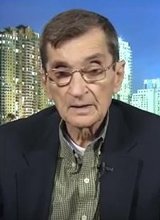
You must be logged in to post a comment.